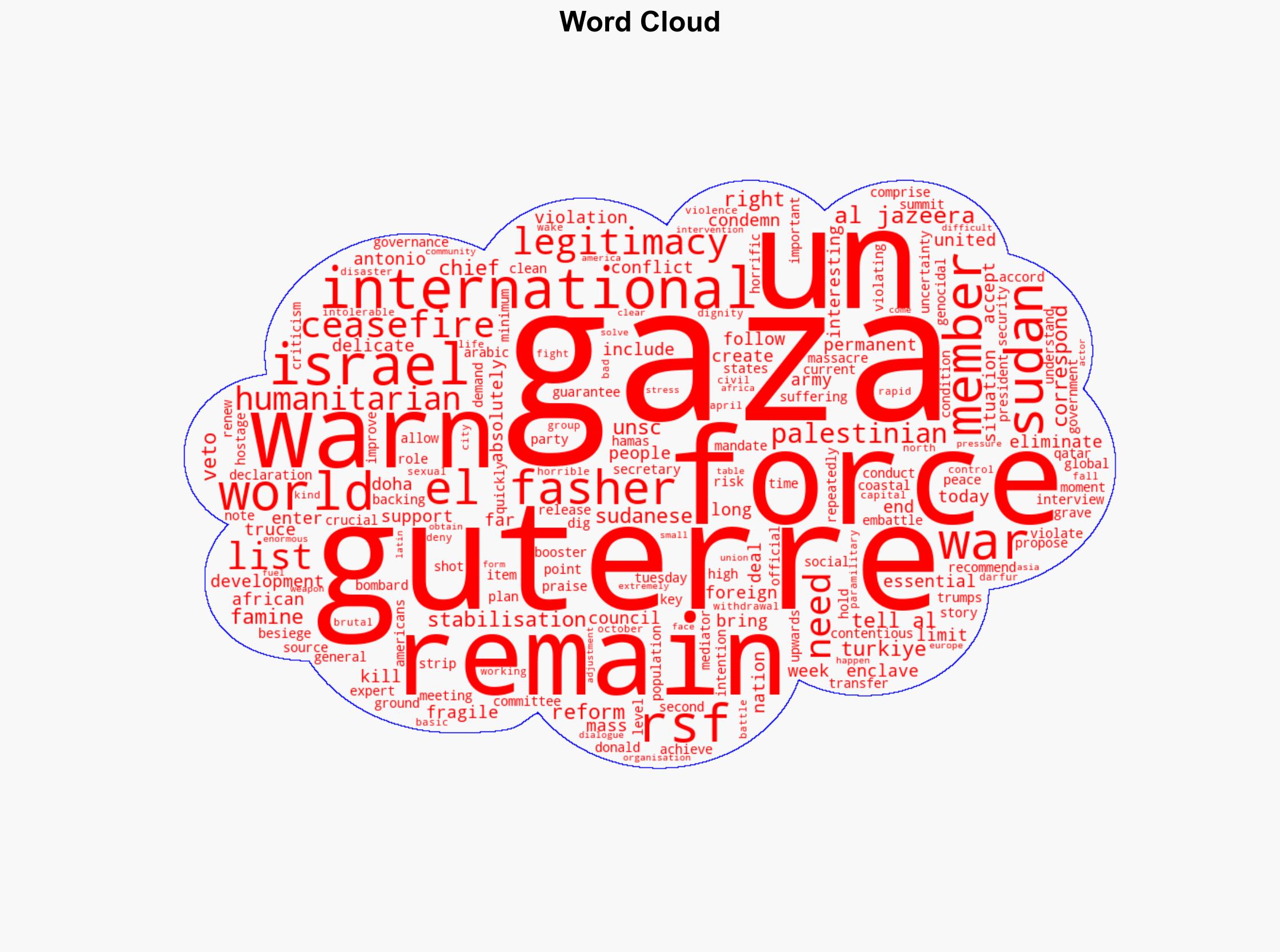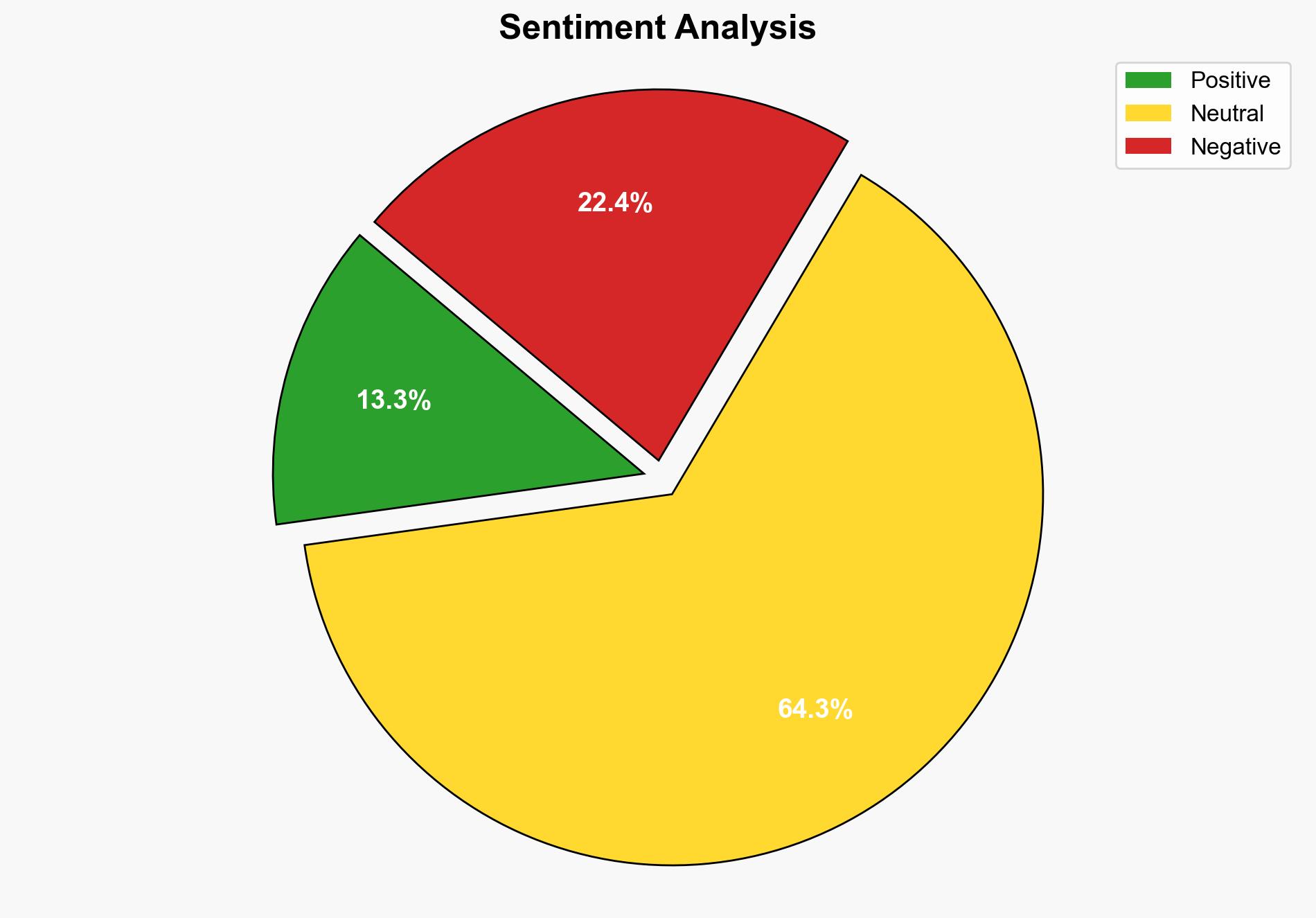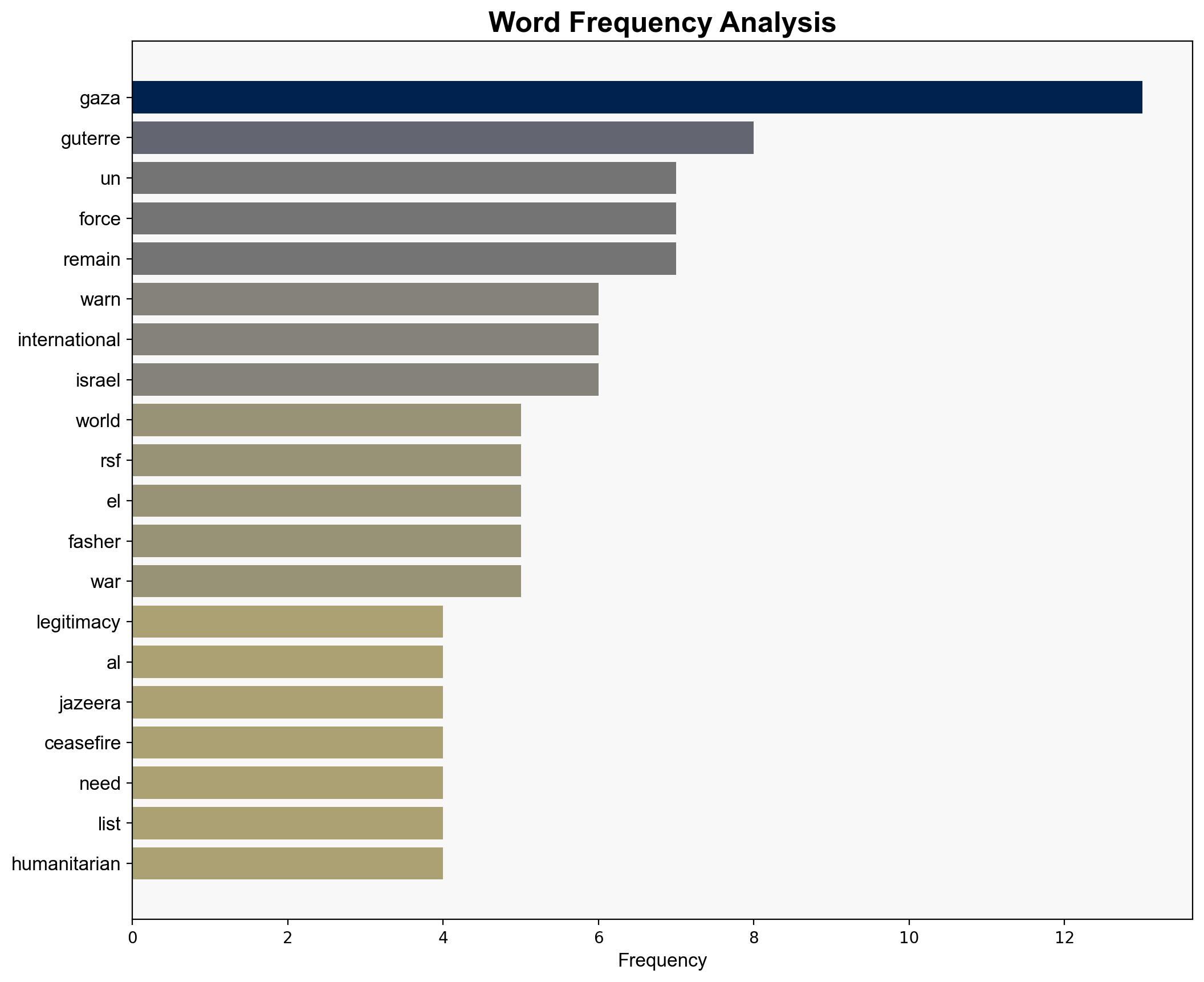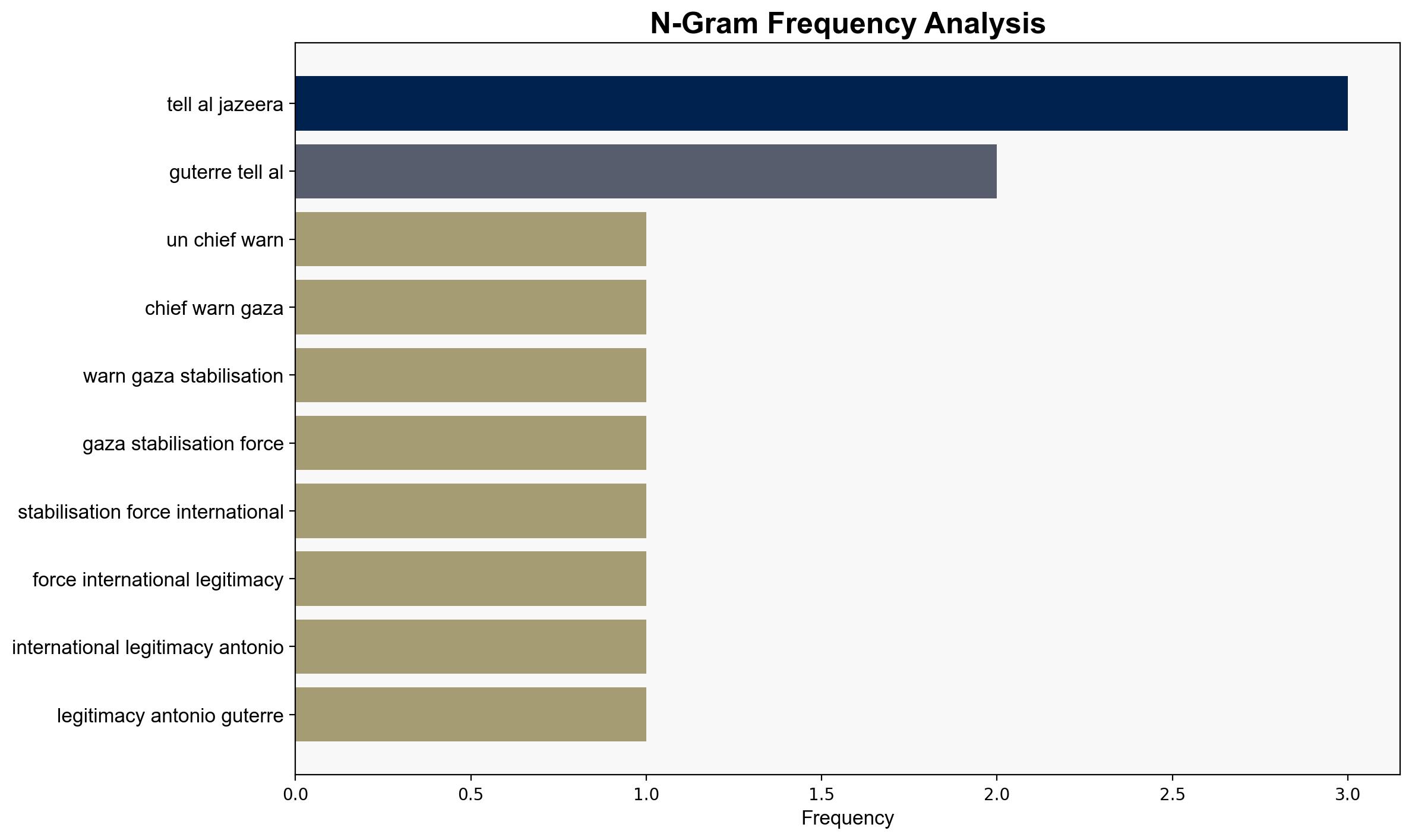UN chief warns Gaza stabilisation force must have international legitimacy – Al Jazeera English
Published on: 2025-11-05
Intelligence Report: UN chief warns Gaza stabilisation force must have international legitimacy – Al Jazeera English
1. BLUF (Bottom Line Up Front)
The most supported hypothesis is that the establishment of a stabilization force in Gaza with international legitimacy is critical to maintaining a fragile ceasefire and addressing humanitarian needs. Confidence level: Moderate. Recommended action: Engage in multilateral diplomacy to form a consensus on the composition and mandate of the stabilization force, ensuring broad international support and legitimacy.
2. Competing Hypotheses
1. **Hypothesis 1**: A stabilization force with international legitimacy is essential to maintain the ceasefire and address humanitarian issues in Gaza. This hypothesis is supported by the UN Secretary-General’s emphasis on international legitimacy and the need for humanitarian intervention.
2. **Hypothesis 2**: The introduction of an international stabilization force could exacerbate tensions and lead to renewed conflict, particularly if perceived as biased or lacking support from key regional actors. This hypothesis considers the contentious nature of forming such a force and the potential for opposition from parties like Israel or Hamas.
3. Key Assumptions and Red Flags
– **Assumptions**: It is assumed that international legitimacy will lead to effective stabilization and humanitarian relief. Another assumption is that all relevant parties will agree on the composition and mandate of the force.
– **Red Flags**: The lack of consensus on the force’s composition and potential resistance from regional actors like Israel and Hamas. The historical ineffectiveness of international interventions in similar contexts could also be a concern.
4. Implications and Strategic Risks
– **Implications**: Successful establishment of a legitimate force could stabilize Gaza, improve humanitarian conditions, and serve as a model for future interventions. However, failure to achieve consensus could lead to increased regional instability and undermine the credibility of international institutions.
– **Strategic Risks**: Potential escalation of conflict if the force is perceived as biased. Economic and geopolitical tensions could rise if key stakeholders are not adequately consulted or if the force’s actions are seen as infringing on sovereignty.
5. Recommendations and Outlook
- Engage in comprehensive diplomatic efforts to build consensus on the stabilization force’s mandate and composition.
- Scenario-based projections:
- Best Case: Broad international support leads to effective stabilization and improved humanitarian conditions.
- Worst Case: Lack of consensus results in increased conflict and humanitarian crisis.
- Most Likely: Partial agreement is reached, leading to a limited but positive impact on stability and humanitarian relief.
6. Key Individuals and Entities
– Antonio Guterres
– Donald Trump
– Israel
– Hamas
– Turkiye
7. Thematic Tags
national security threats, regional focus, humanitarian intervention, international diplomacy




